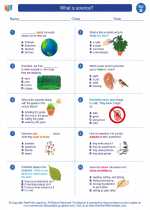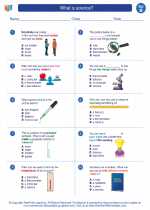What is biotechnology?
Biotechnology is the application of biological systems and organisms to develop products and technologies that improve our lives and the health of our planet.
Areas of biotechnology
1. Medical biotechnology: Involves using living cells and cell materials to research and produce pharmaceutical and diagnostic products that help treat and prevent diseases.
2. Agricultural biotechnology: Focuses on developing genetically modified organisms (GMOs) to improve crop yields, reduce the need for pesticides, and enhance the nutritional content of food.
3. Environmental biotechnology: Utilizes biological processes to address environmental issues, such as pollution remediation, waste treatment, and renewable energy production.
Applications of biotechnology
1. Genetic engineering: Involves modifying the genetic material of living organisms to create genetically modified organisms (GMOs) with desired traits, such as increased resistance to pests or improved nutritional content.
2. Biopharmaceuticals: Production of drugs and vaccines using biotechnological techniques, such as recombinant DNA technology and cell culture methods.
3. Bioremediation: The use of microorganisms to clean up pollutants in soil and water, contributing to environmental conservation and management.
Study guide for biotechnology
1. What is biotechnology and how does it impact various fields such as medicine, agriculture, and the environment?
2. Describe the process of genetic engineering and provide examples of genetically modified organisms (GMOs).
3. Explain the role of biotechnology in the production of biopharmaceuticals and its impact on healthcare.
4. Discuss the potential benefits and concerns associated with agricultural biotechnology, including the use of GMOs.
5. Explore the applications of biotechnology in environmental conservation, such as bioremediation and renewable energy production.
[Biotechnology] Related Worksheets and Study Guides:
.◂Science Worksheets and Study Guides Second Grade. What is science?

 Worksheet/Answer key
Worksheet/Answer key
 Worksheet/Answer key
Worksheet/Answer key
 Worksheet/Answer key
Worksheet/Answer key
 Vocabulary/Answer key
Vocabulary/Answer key
